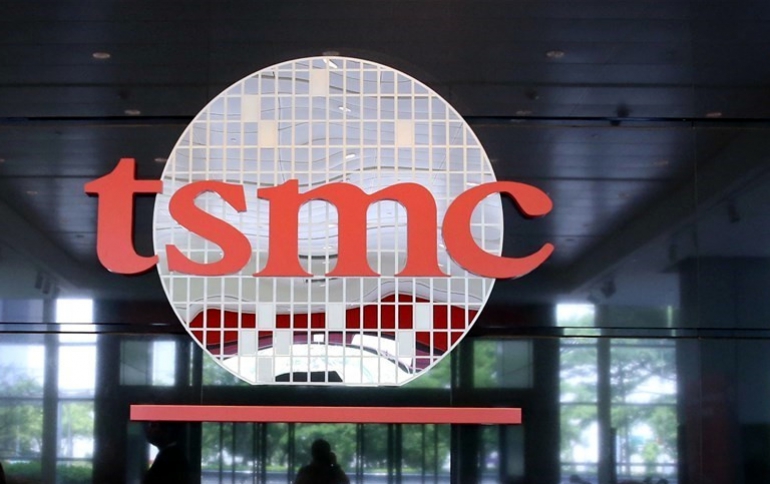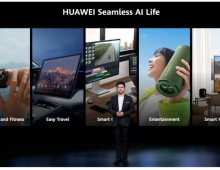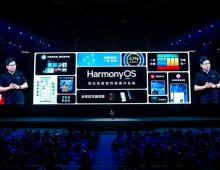
TSMC Does Not Accept New Orders From Huawei: Nikkei
Taiwan Semiconductor Manufacturing Co Ltd (TSMC) has reportedly stopped new orders from Huawei Technologies in response to Washington’s move aimed at further limiting chip supplies to the Chinese company.
Citing multiple sources, the Nikkei reported on Monday that the orders which TSMC took before the new ban and those already in production are not impacted and could continue to proceed if those chips could be shipped before mid-September.
TSMC, the world’s biggest contract chipmaker and a key Huawei supplier, had announced plans to build a U.S.-based plant on Thursday and on Friday added it was “following the U.S. export rule change closely”.
The U.S. Commerce Department on Friday announced new rules, which expand U.S. authority to require licenses for sales to Huawei of semiconductors made abroad with U.S. technology, vastly expanding its reach to halt exports to the world’s No. 2 smartphone maker.
TSMC said it does not disclose order details and added the report was “purely market rumor”.
The Chinese Ministry of Commerce urged the United States government on Sunday to "immediately stop abusing export control measures and pledged to take all necessary measures to protect the legitimate and lawful interests of Chinese businesses."
"It is a violation of market principles and fair competition. The US government, in the name of national security, used national power and abused export control measures to crack down on specific companies in other countries," the Ministry of Commerce said in a statement on its website.
The ministry said that the US government is ignoring the basic rules of international economics and trade and that it also poses a serious threat to the safety of global industrial and supply chain.
Huawei, which needs semiconductors for its smartphones and telecoms equipment, has found itself at the heart of a battle for global technological dominance between the United States and China, whose relationship has soured in recent months over the origins of the deadly coronavirus.
Huawei Technologies called the U.S. measures would impact its business.
“We expect that our business will inevitably be affected. We will try all we can to seek a solution,” Chairman Guo Ping read from a statement to Huawei’s annual global analyst summit on Monday.
Guo said Huawei was committed to complying with U.S. rules and it had significantly increased R&D and inventory to meet U.S. pressures.
Huawei said the new U.S. decision was “arbitrary and pernicious, and threatens to undermine the entire industry worldwide”.
“Huawei categorically opposes the amendments made by the U.S. Department of Commerce to its foreign direct product rule that target Huawei specifically,” it said in a statement, adding that Washington adding it to the entity list a year ago was also without justification.
The decision of the U.S. government will also have some impact on many companies such Samsung Electronics and SK Hynix, which supply DRAMs and NAND flashes to Huawei. Samsung Electronics has also named Huawei as one of its top five corporate customers in its business reports in the past two years.
DRAMeXchange believes that the new rules are subject to further interpretation, and TrendForce says that that their effect on Huawei’s procurement of memory components (both DRAM and NAND Flash) is limited for now, with both DRAM and NAND Flash suppliers able to continue their shipments to Huawei. Worth noting, however, is the fact that the U.S. government will keep tightening its oversight on Huawei and Chinese technology enterprises on the whole.
TrendForce believes that the latest updates to the sanctions will have a relatively low impact, in the short term, on Huawei’s shipment of smartphones, notebook computers, and servers – products for which Huawei is relatively well stocked on components. Instead, the sanctions are likely to primarily affect Huawei’s 5G business. The U.S. government could impede Huawei’s product shipments related to the construction of 5G base stations and networking devices in the future. Based on TrendForce’s estimation, Huawei will probably feel the concrete impact of the new rules on its product shipments after 4Q20.
If Huawei lose access to TSMC equipment, it will have no choice but to rely on Chinese SMIC, but SMIC's highest manufacturing line is a 14-nm process. Samsung Electronics, the world's second-largest foundry company, also owns 5-nm technology, but it cannot manufacture Huawei products because of U.S. sanctions. Huawei could also MediaTech and UniSOC, but it is still unclear whether Huawei will actually purchase APs from these companies.
Some analysts say that HiSilicon is looking for a way out by transferring semiconductor design technology to UniSOC, a subsidiary of Tsinghua Unigroup, but it is highly likely that the next target of the U.S. government will be Tsinghua Unigroup.
Impact to TSMC
Huawei's HiSilicon chip unit occupies approximately 20% of wafer starts in TSMC, which are primarily advanced processes below (including) 16/12nm. Currently, HiSilicon’s chips used in 5G base stations and 4G smartphones are manufactured with TSMC’s 16/12nm node. However, HiSilicon has shifted a small volume of the wafer starts of Kirin 710 SoC for mid-end smartphones to the 14nm process of SMIC this year.
Looking at the production capacity of SMIC, the company’s 14nm process is currently producing the Kirin 710 processor of HiSilicon as the main product, with a monthly production of roughly 5K during 2Q20. Although Semiconductor Manufacturing South China Corporation, a subsidiary of SMIC, has been invested by 2nd phase of Big Fund and the 2nd phase of Shanghai Integrated Circuit Industry Fund with approximately US$2.25 billion, and announced that SMIC will increase the monthly production capacity to 35K, which is an additional 20K of production capacity compared to the initially planned 15K by the end of 2020, TrendForce believes that the yield rate for SMIC’s 14nm process has yet to be improved, thus it will be rigorous to replace TSMC for advanced processes below (including) 16nm with the current configuration of HiSilicon.
"If TSMC maintains its position of halting new orders from HiSilicon on account of not receiving approval from the US government, its wafer shipments to HiSilicon will terminate after the 120-day grace period. If such scenario does come to pass, TSMC could see a noticeable reduction in the capacity utilization rates of the advanced processes below (including) 16/12nm in 3Q20. Although the market anticipates that the strong demand related to the 5G and HPC applications from AMD, NVIDIA, and MediaTek will sustain TSMC’s 7nm production, TrendForce believes this is not enough to fully bridge the demand gap that TSMC could experience as a result of the new trade restrictions."
Tthe prohibition of using American-made hardware and software for the manufacturing of chips designed by HiSilicon (Huawei) without a special license will have a significant impact on TSMC’s operations in the short term.
However, the latest amendments to the Entity List prohibitions do not explicitly target TSMC but instead apply to all semiconductor manufacturers that use equipment and tools provided by American firms. China’s domestic foundry SMIC may be already restricted from shipping products to HiSilicon (Huawei) under the new rules. As for Huawei, Trendforce believes that its inventory is sufficient to maintain production of whole devices in the short term. However, the inability to place chip orders at its two major partnering foundries TSMC and SMIC will eventually affect device production in the medium to long term.





















